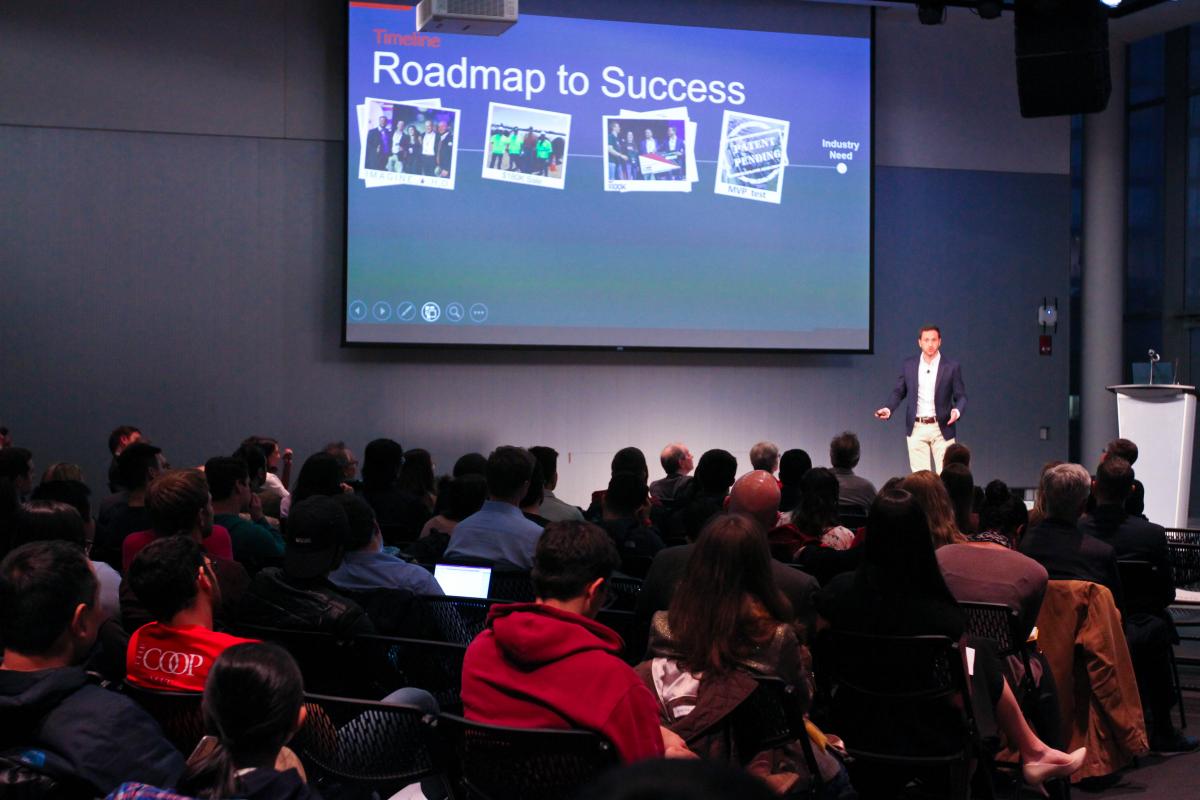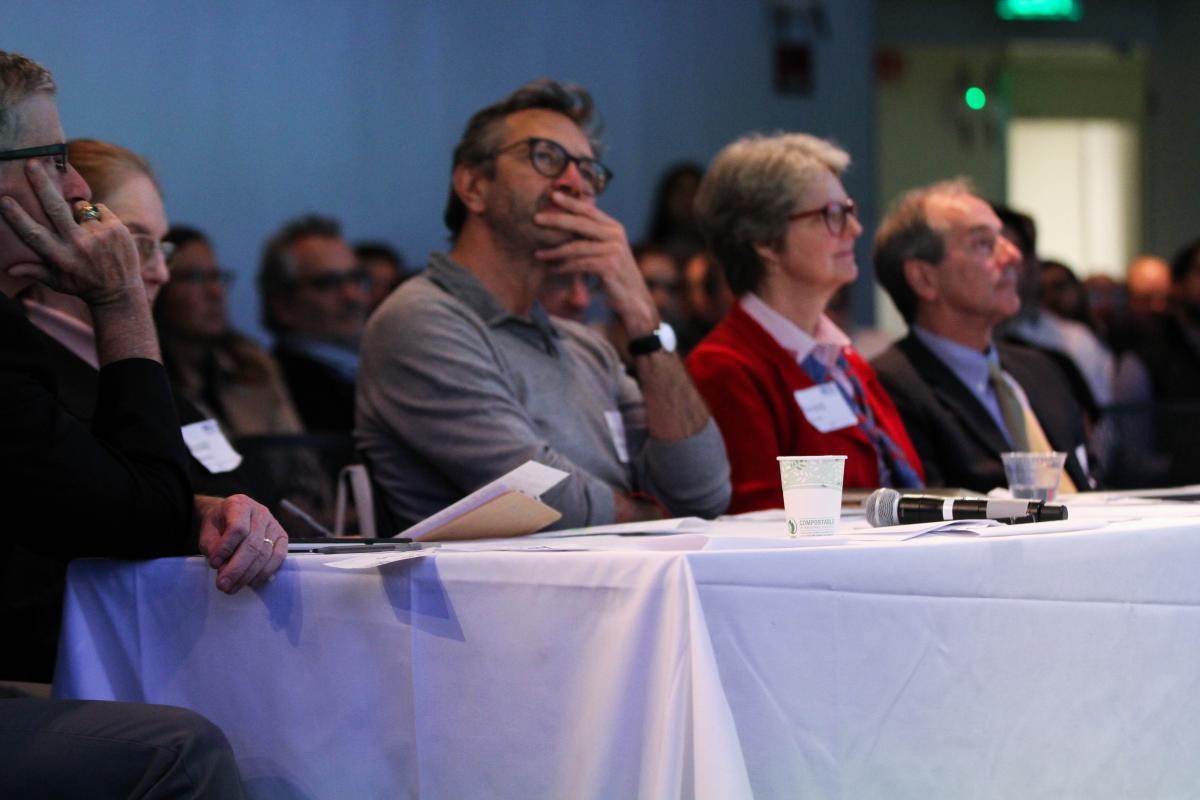News Water Innovation Pitch Night Winners/Food Nexus Topics
Archana Apte, Communications and Program Assistant J-WAFS May 10, 2019

Credit: Andi Sutton, J-WAFS
The MIT Water Innovation Prize, hosted annually by the MIT Water Club, is an entrepreneurship competition that awards up to $35,000 in prizes to student-led startup companies tackling water issues. The 2019 Final Pitch Night, held on April 18th, showcased eleven companies proposing a wide variety of solutions, from water collection in refugee camps to novel irrigation technology. The event focused on the ability of entrepreneurship to offer innovative solutions to pressing water needs across the globe. Audience members as well as the judging panel included representatives of sponsoring organizations, including J-WAFS and the Massachusetts Clean Energy Center.
The evening began with dinner and opening remarks. The keynote speakers focused on the contributions of MIT to solving water challenges, and the role of entrepreneurs in the space. Dr. Wu of Watchtower, a previous winner of the Water Innovation Prize, shared details of his startup journey with the audience. His company, Watchtower, detects underground pipe leaks before they become catastrophic using a robotic sensor. Dr. Wu wanted utility workers to ”no longer need to struggle to get their job done” and is offering the robot as an effective solution. The second keynote speaker, Tom Ferguson of Imagine H20, discussed his work mentoring entrepreneurs in the water space. He focuses on minimizing risk and helping entrepreneurs have impact “on a given sustainable water resource challenge.”

Credit: Andi Sutton, J-WAFS
The Prize judges included J-WAFS director John Lienhard, PI Susan Murcott, and Karen Golmer of the MIT Deshpande Center who works closely with the J-WAFSSolutions grant program, as well as other entrepreneurs in the water space. The judges evaluated pitches from eleven startups primarily focused on underserved markets or innovative technologies.
After the pitches, the panel of judges selected second- and first-place winners.
The second-place winner, Volta Irrigation, which is a student team from Rwanda, developed a pedal-powered irrigation machine that uses smart water sensors to efficiently distribute water across farmland. The device will be rented to groups of ten farmers who will pay back the rental fee at the end of the growing season. The company’s extensive personal experience in Mozambique and Uganda will help them market the product to local farmers in those countries.
Innovation Prize judges chose to split the first-place title between two companies. One winner is SiPure, which targets the Indian textile market with a “patented and unique” silicone water filter developed by MIT researchers that can “reclaim more than 98% of the water from the original textile wastewater stream.” Textile wastewater poses a health risk to local residents and ecosystems, and manufacturers find it more cost-effective to dump pollution rather than undertake the costly, seven-step filtration process that conforms to environmental regulation. Replacing the seven-step filtration process with a single filter will cut costs for textile manufacturers, incentivizing them to purify their wastewater. SiPure plans to partner with an Indian textile company to conduct further testing.
The second first-place winner, Symbrosia, plans to pair methane reduction in cattle with sustainable shrimp farming. The company is growing algae that reduces methane production in cows by 99%; by pairing algae farming with organic shrimp cultivation, the company devised a closed-loop, zero waste production process that “uses fifteen times less water than traditional aquaculture methods.” Symbrosia will sell the algae to the cattle industry and the shrimp to local restaurants. For its next steps, Symbrosia is testing the viability of its production process, including the methane reduction capability of the algae.
The evening concluded with networking between the startup companies and attendant organizations in the water space. Overall, the 2019 Water Innovation Prize Final Pitch Night highlighted MIT’s commitment to impact-based entrepreneurship.